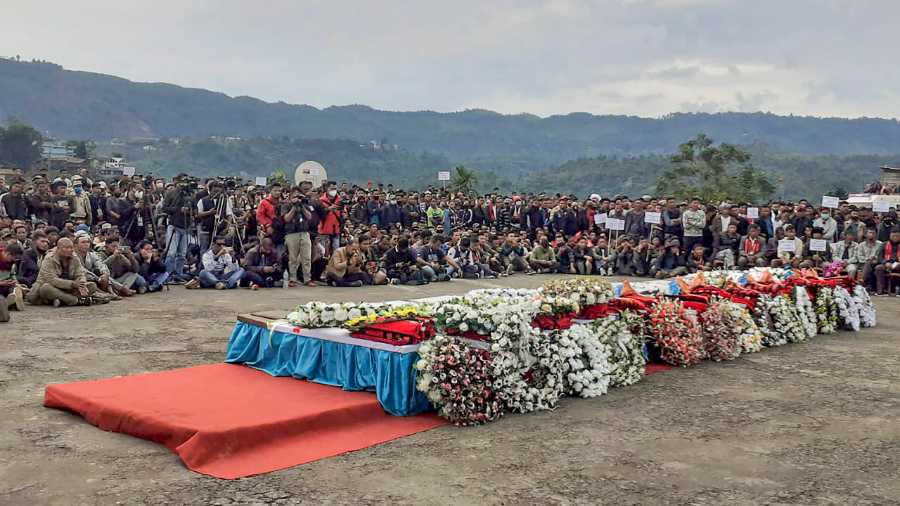Civilians falling prey to the bullets of security forces is a blot on the nation. Unfortunately, the restive parts of India are witness to such transgressions quite often. The latest incident took place in Nagaland’s Mon district where six civilians — workers in a coal mine — were gunned down in an ‘ambush’ by army men. Several lives were lost in the retaliatory violence. New Delhi has described the deaths as ‘unfortunate’; the army, while promising an investigation at the highest level, has expressed regret. These acts of commiseration are necessary, but a lot more needs to be done. The investigation must be transparent and the guilty taken to task. There are whispers that faulty intelligence may have led to the bloodshed. If this is indeed true, there must be a shakeup in the army’s investigation edifice. It has also been alleged that the army is under pressure to ‘deliver’ after the brutal killing of a colonel in a deadly strike in Manipur. A line of thought argues that at the heart of such oversight lies the prevailing ambience of impunity: the absence of accountability stems from the Armed Forces (Special Powers) Act that, allegedly, is used as a legal shield to deflect charges of men in uniform perpetrating collateral civilian damage, staged encounters and extra-judicial killings. It must be noted that the Supreme Court took it upon itself to examine over 1500 such unnatural deaths in Manipur. What must also be debated is the army’s deployment in civilian areas, a strategy that runs the risk of spatial militarization.
The Bharatiya Janata Party, which has the Northeast under its thumb, is likely to face the heat on two fronts. The Opposition would undoubtedly corner the Centre. That may well be the minor flame. The real concern is that the blood spilled by the army in Nagaland could seriously impair the peace talks — they are already facing serious hurdles — with Naga insurgents. The disaster that befell Mon could, in fact, make the National Socialist Council of Nagaland, the most influential faction among the stakeholders, more obdurate in its stance, further dimming the possibility of an early resolution. This would test the mettle of the government’s interlocutors and they would do well to shun haughtiness. Public sentiment could turn adverse, widening the existing chasm between the State and the people. This cannot be good news in a state with a long history of scarring violence.

